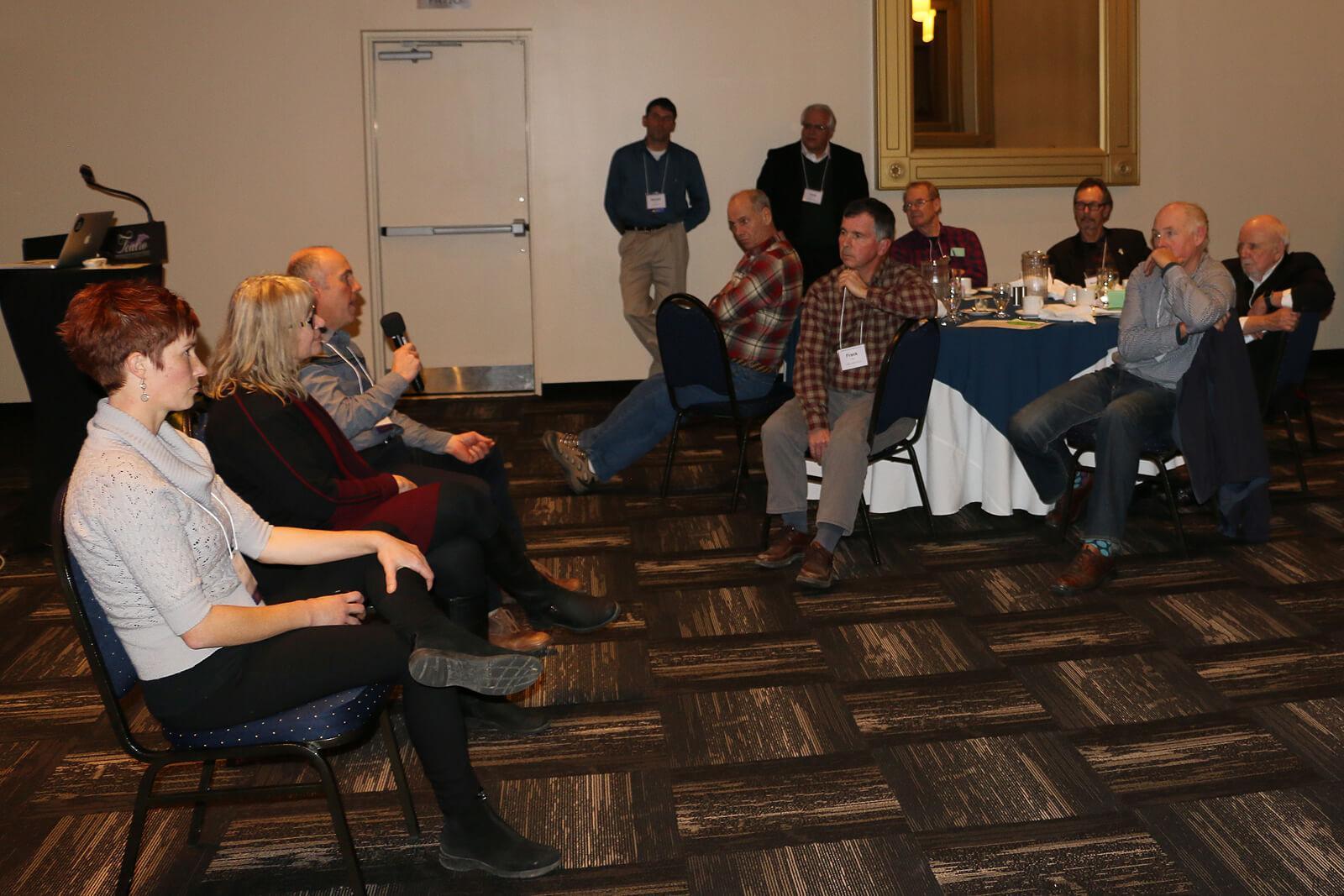
Growers look to the future
Over 60 growers attended the annual Landscape Ontario Growers Group Fall Dinner Meeting at the Teatro Conference Centre in Milton, Ont., on Nov. 29 to discuss issues of relevance to the grower profession.
An energetic hour of networking was followed by dinner and three guest speakers who presented many facts and philosophies on seed zones and the role of natives and non-natives in Ontario.
Allan Arthur, Senior Ecologist and President of St. Williams Nursery and Ecology Centre, talked about the nursery’s use of seed zone-sourced plants and provided some insight into the different roles both native and non-native plants play in regards to providing food for both insects and wildlife in the ecosystem. Arthur explained scientific research shows both insects and wildlife greatly prefer native species and that non-natives provide only minimal support to the ecosystem. He explained one requirement for plant material at St. Williams is that it must benefit the entire ecosystem.
Barb Macdonell, Senior Environmental Planner for the Ministry of Transportation, spoke about the selection of plant material used for the $1.4 billion Rt. Hon. Herb Grey Parkway project in the Windsor area. Because the 11 km extension of Highway 401 is located in an urban area that contains remnants of a unique and globally-threatened ecosystem, an unprecedented ecological and sustainability component of the project included 300 acres of green space along the highway. Macdonell explained some of the challenges the project encountered with having to procure very specific varieties of nursery stock.
Melissa Spearing from Forest Gene Conservation Association discussed her work in sourcing and collecting seeds and its relevance in a rapidly changing climate. Spearing explained the need to consider not just temperature, but many other contributing factors when looking at seed zones in Ontario that were established many decades ago as a general guideline by the Ministry of Natural Resources.
Arthur says the event “was a great opportunity to engage with other LO members. It is clear there is strong and increasing market demand for source-identified Ontario native plants.”
A question period after the presentations provided a great forum for growers to discuss ideas and challenges they all face in their businesses and in the future.
Jeanine West, Horticultural Consultant with PhytoServ, says, “The panel on seed zone policy was excellent. Perspectives from all sides of the table came together for a very informative and timely discussion. Our profession has a unique opportunity to contribute to biodiversity and conservation in Ontario.”